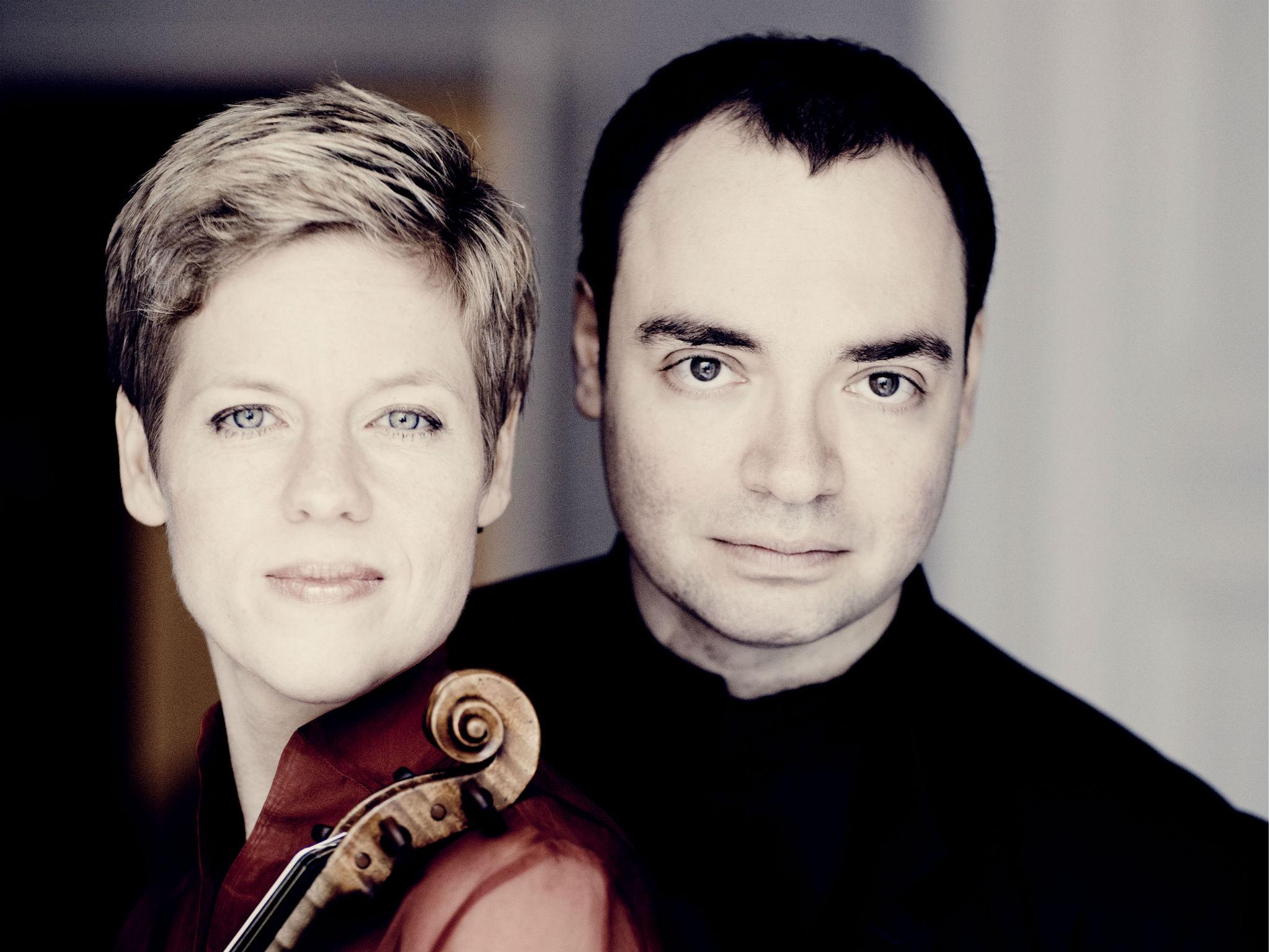Isabelle Faust/ Alexander Melnikov, Wigmore Hall, London, review: Music for connoisseurs
The violinist Faust and pianist Melnikov performed the second leg of the Mozart sonata cycle on gut strings and fortepiano

Your support helps us to tell the story
From reproductive rights to climate change to Big Tech, The Independent is on the ground when the story is developing. Whether it's investigating the financials of Elon Musk's pro-Trump PAC or producing our latest documentary, 'The A Word', which shines a light on the American women fighting for reproductive rights, we know how important it is to parse out the facts from the messaging.
At such a critical moment in US history, we need reporters on the ground. Your donation allows us to keep sending journalists to speak to both sides of the story.
The Independent is trusted by Americans across the entire political spectrum. And unlike many other quality news outlets, we choose not to lock Americans out of our reporting and analysis with paywalls. We believe quality journalism should be available to everyone, paid for by those who can afford it.
Your support makes all the difference.It speaks volumes about the health of classical music in London that the Wigmore should have been full for the second leg of the Mozart sonata cycle by violinist Isabelle Faust and pianist Alexander Melnikov. For although these are top-flight musicians, this was intimate stuff, music for connoisseurs. And the instruments themselves reinforced that intimacy: while Faust was using gut strings, Melnikov was officiating on a fortepiano.
Gut strings offer a quite different colour palette from that of modern strings, which are either made of steel or synthetic material. And the fortepiano is to a modern Steinway what candle-light is to neon: just as our eyes must get used to an infinitely softer light with candles, so our ears must attune themselves to an altogether subtler sound-world with an instrument of the kind Melnikov was playing – the replica of a fortepiano such as Mozart himself would have used.
What unites these versatile players – who regularly perform together – is a refined and unmannered musicianship which suits Mozart’s unassuming sonatas perfectly. There were occasional untidinesses in Melnikov’s playing – in music with so few notes, every single one counts – but Faust drew many kinds of beauty from the score. Mozart was literally creating an art-form as he went along, and this recital included the sonata whose deep pathos and tragic resonance set it apart from all the others, in E minor K 304. This had been composed in the wake of the composer’s mother’s sudden death while they were touring in Paris, and the second movement, with its sotto voce minuet theme and poignant key-changes, was the purest expression of grief. It’s a fair bet that no one in the audience had ever heard the exquisite Adagio by Carl Maria von Weber which constituted the encore.
Join our commenting forum
Join thought-provoking conversations, follow other Independent readers and see their replies
Comments